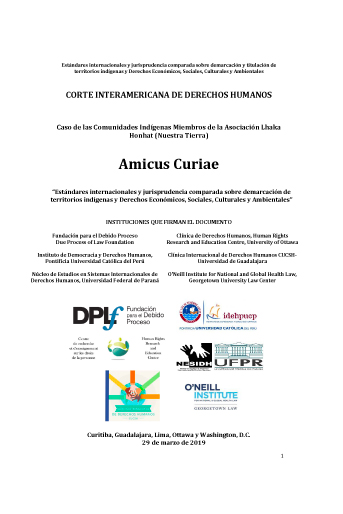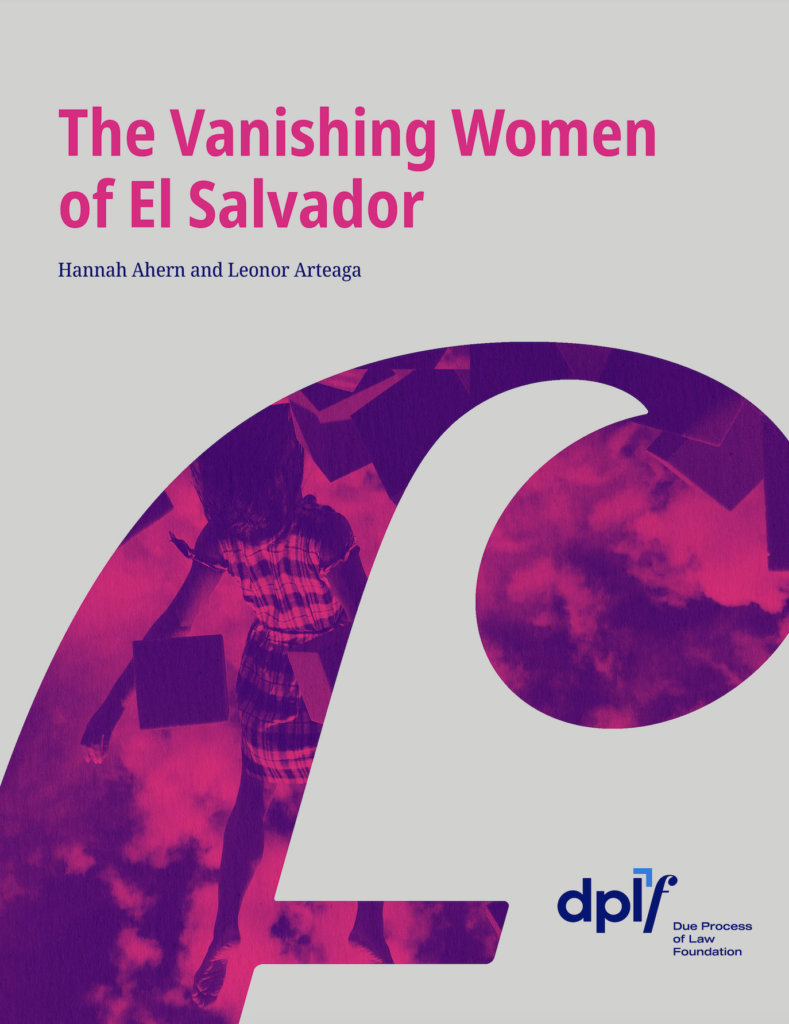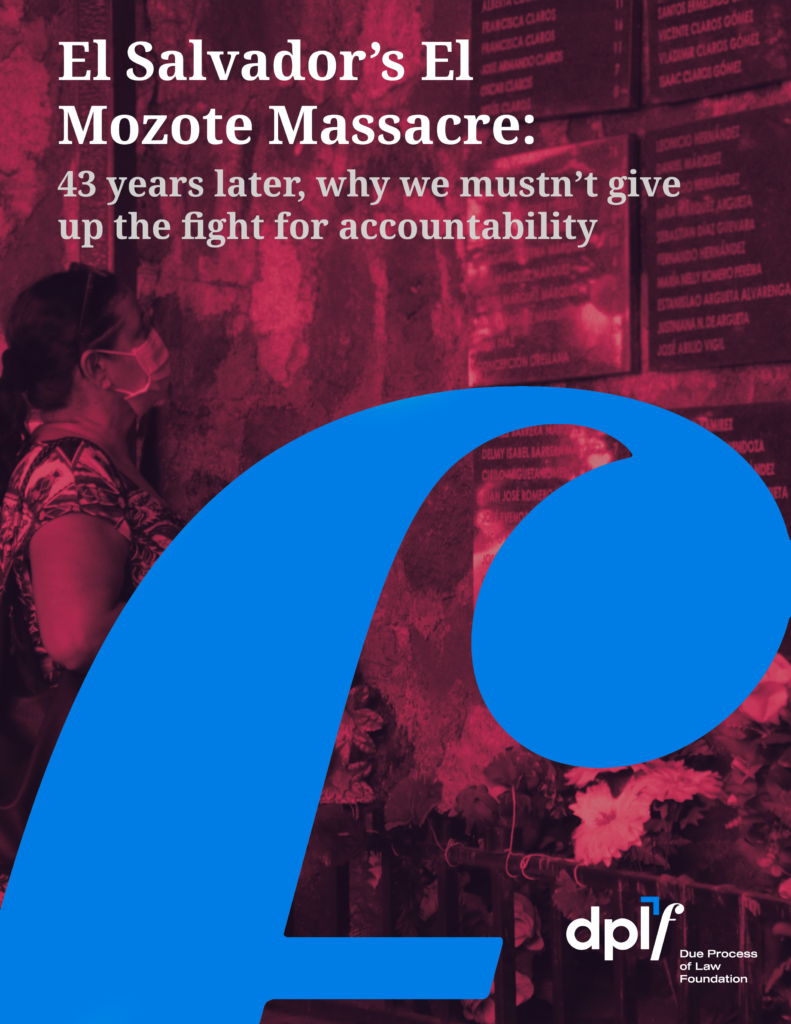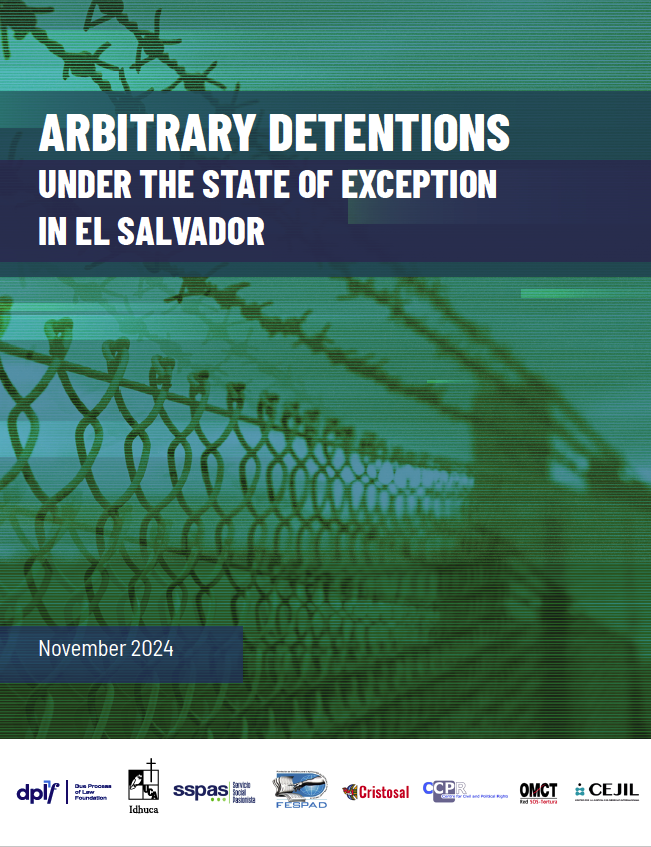The document addresses international standards and comparative jurisprudence on demarcation of indigenous territories and Economic, Social, Cultural and Environmental Rights (DESCA).
On March 29, 2019 the Foundation for Due Process, the Human Rights Clinic of the Human Rights Research and Education Center of the University of Ottawa, the International Human Rights Clinic of the University of Guadalajara, the Institute of Democracy and Human Rights of the Pontifical Catholic University of Peru (IDEHPUCP), the O’Neill Institute for National and Global Health Law of the Georgetown University Law Center, and the Nucleus of Studies in International Human Rights Systems of the Federal University of Paraná presented an amicus curiae to the Inter-American Court of Human Rights, in a case involving the lack of land titling of indigenous communities inhabiting the former Fiscal Lots 55 and 14 of the Department of Rivadavia, in the Argentine province of Salta.
Such communities claim ownership over their ancestral territory in the form of a common and undivided title, in order to preserve their ways of life and cultural practices. In addition to the lack of a land title consistent with their uses and customs, communities have been affected by the presence of non-indigenous Creoles, barbed-wire fences, livestock, deforestation, the concession of oil projects and the construction of road routes within their territory. The case offers the Inter-American Court of Human Rights the opportunity to deepen its jurisprudence on the territorial rights of indigenous peoples and the State’s obligation to recognize their traditional forms of representation and association. In addition, the case is of particular interest since it is the first case submitted to the jurisdiction of the Inter-American Court of Human Rights related to the rights of indigenous peoples in Argentina. It is also an opportunity for the Inter-American Court of Human Rights to analyse the direct justiciability of the DESCA on the indigenous communities and establish reparation measures in accordance with such approach.
The amicus curiae systematizes the standards of the Universal and Inter-American System of Human Rights and the comparative jurisprudence in Canada, Australia and New Zealand on the obligation of titling indigenous territories, in accordance with their usage and customs. The document also addresses the justiciability of the DESCA under Article 26 of the American Convention on Human Rights, in particular the rights to a healthy environment and food. Finally, the amicus recommends that the Inter-American Court order the Argentinian State, among other restorative measures:
To finalize the demarcation and delimitation of the indigenous territory without the overlapping of lands occupied by Creole families.
Titling the 400,000 hectares claimed in a single title, on behalf of all the indigenous communities that inhabit former fiscal lots 55 and 14 of the Department of Rivadavia, in the province of Salta.
To create a development fund with sufficient resources and enable the necessary mechanisms allowing the communities to decide autonomously on the measures aimed at restoring the damages suffered as a result of the dispossession and environmental degradation of their territories.




